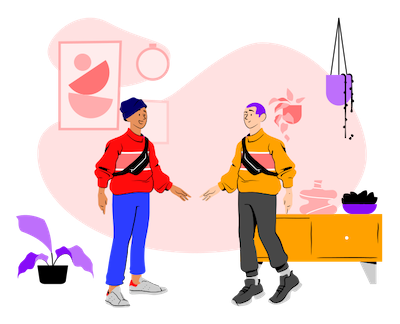|  | | | Hello language enthusiasts! In this week's issue, we're hitting the imaginary beaches of Spain, engaging in riveting Spanish conversations, and delving into some fun vocabulary! |
| |
| |
|
|
hacerse mechas 'Hacerse mechas' does not translate to 'get in the way' in English. In fact, it literally translates to 'making highlights' and is commonly used in the context of hair styling where 'mechas' refers to 'highlights' or 'streaks'. Therefore, 'hacerse mechas' would typically be used to describe someone getting highlights in their hair. Here's how to use it: Estoy pensando en hacerme mechas para cambiar mi apariencia. Lucía decidió hacerse mechas para darle más brillo a su cabello. Antes de hacerse mechas, es aconsejable que consultes con un profesional.
| |
|
¡Buenos días! You use this greeting in the morning until around noon. It literally translates to 'good days' but is understood as 'good morning'. Here's how to use it: | |
|
reducir The term 'reducir' in Spanish is used to refer to the act of making something smaller or less in size, amount or degree, similar to how the word 'reduce' is used in English. It is typically used in contexts such as cooking, mathematics, and discussions about savings or decrease. Here's how to use it: Es importante reducir el estrés en nuestras vidas. Debemos reducir el desperdicio de comida en nuestros hogares. Es esencial reducir la desigualdad en nuestra sociedad.
| |
|
ir a la playa The Spanish phrase 'ir a la playa' translates to 'go to the beach' in English. It combines the verb 'ir', which means 'to go', with the preposition 'a', which means 'to', and the noun phrase 'la playa', which means 'the beach'. It expresses an action of traveling or moving to a beach. Here's how to use it: Voy a ir a la playa este fin de semana si el tiempo lo permite. Preferiría ir a la playa en lugar de ir al cine. Puedes llevar tu sombrero cuando vayas a ir a la playa.
| |
|
poblado The Spanish term 'poblado' translates to 'village' in English. It is usually used to refer to a small human settlement, typically one that is larger than a hamlet but smaller than a town. Such settlements are often situated in a rural or a semi-rural area and they usually consist of a few dwellings where people live. The term 'poblado' is a noun, and it reflects the beauty and simplicity of small-scale, community-oriented living arrangements in Spanish-speaking cultures. Here's how to use it: El poblado está lejos de aquí. Vivo en un poblado pequeño. Encontraron un poblado abandonado.
| |
|
💬💬💬 A chat about sports preferences and favorite activities. Siempre he sido fanático del fútbol. ¿Tú practicas algún deporte? | |
|
| Never stop learning, Mike from LangBites PS If you are enjoying these emails, buying me a coffee is much appreciated! 🙏🏼 | |
|
| You received this email because you signed up at LangBites.co. Click here to unsubscribe. |
| |
|
|
|

